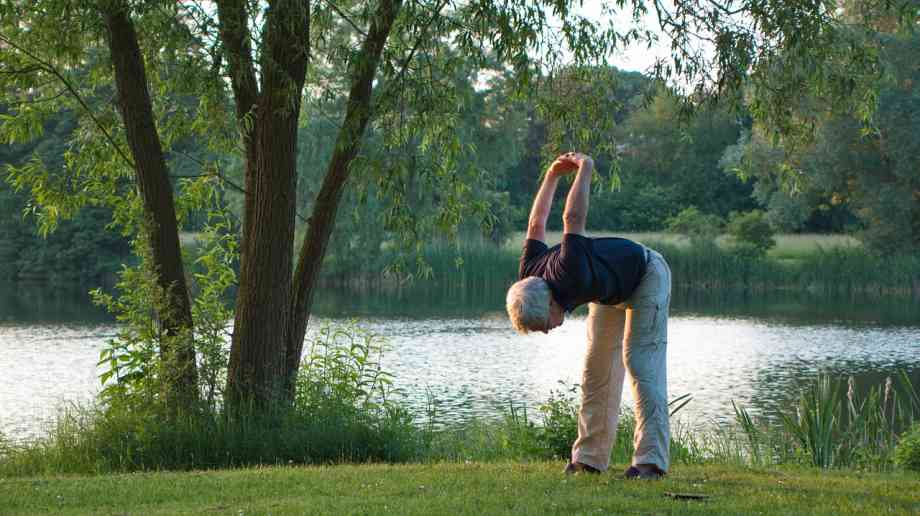Sue Robb of 4Children talks to Julie Laughton and Alison Britton from the Department for Education about the role of childminders in delivering the 30 hours free entitlement.
Worrying increase in the number of inactive adults

Sport England has found that the first eight months of coronavirus restrictions has led to a worrying increase in the number of people who were inactive – doing less than 30 minutes of activity a week or nothing at all.
The organisation’s latest Active Lives Adult Survey found that the majority of physically active adults in England managed to maintain their habits despite the challenges of the coronavirus pandemic.
The pandemic led to unprecedented decreases in activity levels during the initial restrictions and, as a result, the latest annual results show that 710,000 fewer active adults met the Chief Medical Officer’s guidelines of taking part in 150 minutes of moderate intensity physical activity a week compared to 12 months earlier. Furthermore, compared to a year previously, there were 1.2 million more inactive adults taking part in less than an average of 30 minutes a week, taking the total number of inactive adults in England to 12.3 million.
Activity levels were hit hardest during the initial phase of the pandemic (the national lockdown between mid-March and mid-May), with smaller reductions seen during the second phase, as restrictions were eased.
Sport England says that, whilst the restrictions severely limited the ability to take part in some activities, such as swimming and team sports, they found significant attempts to find alternatives through increases in activities like walking for leisure, running and cycling for leisure and sport.
Tim Hollingsworth, chief executive of Sport England, said: “We know the pandemic has had a huge impact on people’s ability to engage in sport and physical activity, but the reality is it could have been worse. It is encouraging to see in the survey that so many still found ways to be active despite the majority of opportunities being unavailable or severely restricted.
“Today’s report has also reminded us that not everyone has been impacted equally and we owe it to the groups disproportionately affected – women, young people, disabled people, people with a long-term health condition, and those from a Black or Asian background in particular – to do everything we can to help them to return to activity in the coming weeks and months. In particular, the decline in activity levels in the 16-24 age group is of major concern - helping and inspiring young people to re-engage with sport and physical activity has now to be a number one priority not just for Sport England but for us all.
“The report has also shown that, while new and more informal forms of physical activity are a great option for many, the role that organised sports and teams and our gyms and pools up and down the country play is still absolutely vital – not least in connecting our communities and reaffirming the social bonds we all need. The government understands this and we will continue to work closely with them to ensure the sport and physical activity sector remains a priority on the roadmap to reopening.”
Gerald Vernon-Jackson, chair of the LGA’s Culture, Tourism and Sport Board, said: “The closure of gyms, sports halls and other facilities throughout the pandemic has meant many adults have been less active in the last year. Local government plays a critical role in delivering sport and fitness activities and maintaining the UK’s leisure infrastructure, helping to address existing health inequalities and provide affordable leisure opportunities. It is fantastic to see so many places reopening and welcoming back their communities.”
Company Focus
Located in Bromley, Japanese Knotweed Eradication Ltd has been providing solutions in the treatment and removal of Japanese Knotweed (Fallopia Japonica) for over a decade. During this time we have mastered a repertoire of methods, from herbicidal treatments to landscaping solutions, tailored to address the unique challenges our clients face with this pervasive weed.
Event Diary
UKREiiF has quickly become a must-attend in the industry calendar for Government departments and local authorities.
The multi-award-winning UK Construction Week (UKCW), is the UK’s biggest trade event for the built environment that connects the whole supply chain to be the catalyst for growth and positive change in the industry.
Supplier Profiles
Geo Energy
At GeoEnergy Design, we're on a mission to disrupt the traditional way heating and cooling ha
Latest Features
Professor Harith Alani, director of the Knowledge Management Institute at the Open University explains how AI can be used for good and bad.
Alex Lawrence, head of health & social care, techUK sets out techUK’s Five Point Plan for CareTech.

















